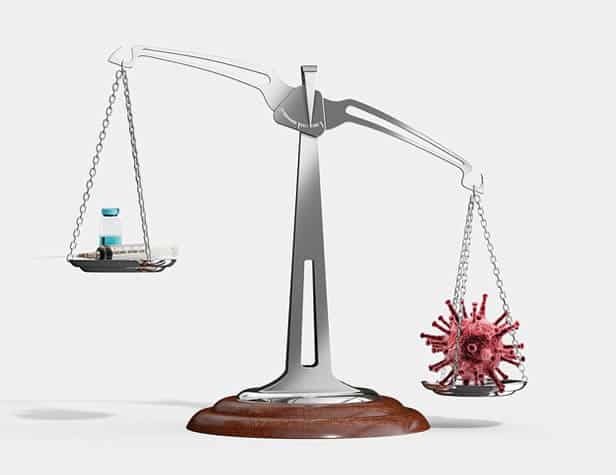Randomised Controlled Trials – Importance and path ahead for COVID-19

Last updated on February 14th, 2023 at 11:33 am
Mighty disbelief and chaos among the Indian and world health bodies alike ensued as India-based Patanjali Ayurveda in Haridwar, Uttarakhand claimed to have the cure for coronavirus in its preparations ‘Coronil’ and ‘Swasari’. Patanjali Ayurveda head and yoga guru Ramdev claimed that the medicines can cure Covid-19 in just seven days. Ramdev revealed that the center had carried out RCT or Randomized Controlled Trials among Covid-19 positive cases. The yet to be published RCT report by company claims to have included 100 positive COVID-19 patients. Though 5 patients dropped out of the study midway, 45 people were given the drug while 50 were administered with placebo. 31 patients given drugs tested negative on the third day.
Ministry of AYUSH (Ayurveda, Yoga and Naturopathy, Unani, Siddha and Homeopathy) responded to the large scale advertisements saying that they must be stopped by the company as potential cure of the virus, indicating that it can invite provisions of Drugs and Magic Remedies (Objectionable Advertisements) Act of 1954. The government said that as the details of the study carried out by Patanjali were not known, more clarifications are required. Ministry has asked Patanjali Ayurveda “to provide at the earliest details of the name and composition of the medicines being claimed for COVID treatment; sites/ hospitals, where the research study was conducted for COVID-19; protocol, sample size, Institutional Ethics Committee clearance, CTRI registration and results data of the studies and stop advertising/ publicizing such claims till the issue is duly examined”.
RCT – an overview
A randomized controlled trial or RCT can be understood as a scientific experiment, sometimes medical, with the aim to reduce certain factors of bias while experimenting for a potential treatment. The study is done on a random group of people who receive one of many clinical interventions. A standard control is one such intervention – a control can either be a standard treatment practice, a placebo (or a “sugar pill”) or no intervention. The purpose of RCT is to compare the outcomes of the drug or treatment under trial with that of control.
Randomized controlled trials can be of various types depending on type of intervention and number of participants. Single-blind trials are the ones in which either participants or investigators do not know who is assigned drug or treatment and who is assigned placebo. In Double-blind trials both participants and investigators are not aware of who is given what. Triple and quadruple-blind trials are the ones in which three or four of relevant groups of subjects are not aware of the assignment of treatment or control.
Read: Punjab faces political turmoil over Centre’s farm ordinances
Are RCTs good option while in midst of a pandemic?
Health professionals around the world are all unified in opinion that Randomized controlled trials are definitely the best option as we are scrambling to find a treatment or vaccine for the novel coronavirus.
Prof. Madhukar Pai, Director of McGill Global Health Programs, McGill University in Canada says, “No other design can get us close to the ‘counterfactual’ comparison we need to see if an intervention is casually linked to a particular outcome.” Advantage of RCT is that it eliminates any impact of chance in cause and effect relationship.
The scientists and leading healthcare researchers say that a good RCT for Covid-19 must include a good number of cases, properly define clinical endpoints, include mortality and morbidity, and also whether intubation or hospital stay was needed. The “hurry, hype and marketing” for Ayurveda drugs and Favipiravir recently was “not science”.
RCT and Ethics
Ethically speaking, an RCT must be employed when the researchers are of firm thought and hope that the trial treatment in question is going to have some benefit for the patients. Participants of the trial must be left in a better situation post the RCT is culminated.
A classic example of ethical use of RCT for COVID-19 treatment was the study of Dexamethasone drug that reduced the mortality rate to one-third.
The RECOVERY (Randomized Evaluation of COVID-19 therapy) trial is an example of a large-scale RCT being carried out at various locations with multiple partners, aiming trials of multiple possible treatments for the coronavirus. Over 11,500 patients have been enrolled in this randomized controlled trial.
Solidarity trial is another large scale RCT to zero down on a possible treatment of coronavirus. The trial is launched by the WHO and partners. This trial is aimed at comparing four possible treatments for COVID-19 against standard of care.
Remdesivir study is also a great example of RCT which showed improvement in patients condition by reducing their ICU (intensive care unit) stay. Though no major impact on the mortality was found.
Randomized clinical trials, though time consuming, are the best bet for zeroing out a treatment for COVID-19. The physical proof of a trustable data with tangible evidence of link to a desirable particular outcome can be achieved by RCTs.



